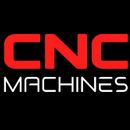Why Choose a Career in Manufacturing? Pros, Cons, and Career Outlook

Why Choose a Career in Manufacturing? Pros, Cons, and Career Outlook
Manufacturing has long been a cornerstone of economic development, offering diverse opportunities for individuals seeking stable and rewarding careers. With advancements in technology and a growing demand for skilled workers, manufacturing presents both challenges and benefits worth considering.
✅ Pros of a Career in Manufacturing
1. Strong Job Prospects and Stability
Manufacturing remains a vital sector in the U.S. economy, contributing over $2.35 trillion annually. The industry is experiencing a skills gap, with an estimated 3.5 million new skilled manufacturing jobs projected in the next decade. This demand ensures robust job prospects and long-term stability for those entering the field.
2. Competitive Salaries and Benefits
Manufacturing careers often offer attractive compensation packages. The average manufacturing salary exceeds $63,000, with many positions providing comprehensive benefits, including health insurance, retirement plans, and paid vacations.
3. Opportunities for Advancement
The manufacturing sector offers clear pathways for career progression. Employees can advance from entry-level positions to roles in management, quality control, or specialized technical areas, often supported by employer-sponsored training and development programs.
4. Engagement with Cutting-Edge Technology
Modern manufacturing integrates advanced technologies such as robotics, 3D printing, and the Internet of Things (IoT). Working in this environment allows individuals to develop valuable technical skills and stay at the forefront of innovation.
5. Contribution to Economic Growth
Manufacturing plays a critical role in economic development by creating jobs, fostering innovation, and supporting ancillary industries. A career in manufacturing enables individuals to contribute meaningfully to their communities and the broader economy.
❌ Cons of a Career in Manufacturing
1. Physical Demands and Work Environment
Some manufacturing roles involve physically demanding tasks and exposure to noise or hazardous materials. However, advancements in safety protocols and automation have significantly improved working conditions in many facilities.
2. Shift Work and Overtime
Manufacturing operations often run around the clock, requiring employees to work in shifts, including nights and weekends. While this can offer flexibility for some, it may pose challenges for others seeking traditional work hours.
3. Susceptibility to Economic Fluctuations
The manufacturing sector can be sensitive to economic downturns, leading to potential layoffs or reduced hours during periods of decreased demand. Diversifying skills and staying adaptable can help mitigate these risks.
📈 Short-Term Benefits
- Immediate Employment Opportunities: With a high demand for skilled workers, individuals can often secure manufacturing jobs shortly after training or certification.
- Skill Development: Entry-level positions provide hands-on experience, allowing employees to acquire and refine technical skills quickly.
- Financial Stability: Competitive wages and benefits contribute to early financial independence and the ability to plan for the future.
🚀 Long-Term Benefits
- Career Advancement: Continued learning and experience can lead to promotions and specialized roles within the industry.
- Job Security: As manufacturing continues to evolve, the need for skilled professionals ensures ongoing employment opportunities.
- Retirement Benefits: Many manufacturing employers offer robust retirement plans, supporting long-term financial well-being.
🧭 Is Manufacturing the Right Career Path for You?
Choosing a career in manufacturing depends on individual interests, strengths, and career goals. If you value hands-on work, enjoy problem-solving, and are interested in technology and production processes, manufacturing could be a fulfilling and lucrative career choice.
Manufacturing offers a dynamic and evolving career landscape with numerous opportunities for growth and development. By weighing the pros and cons and considering both short-term and long-term benefits, individuals can make informed decisions about pursuing a career in this essential industry.


